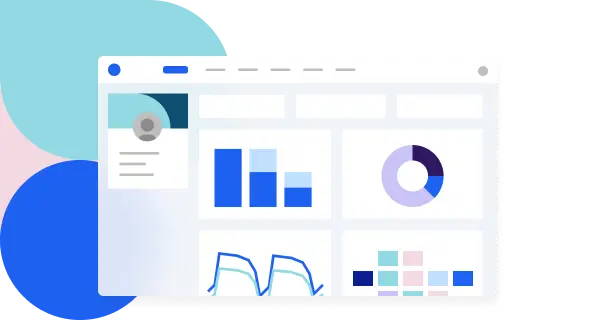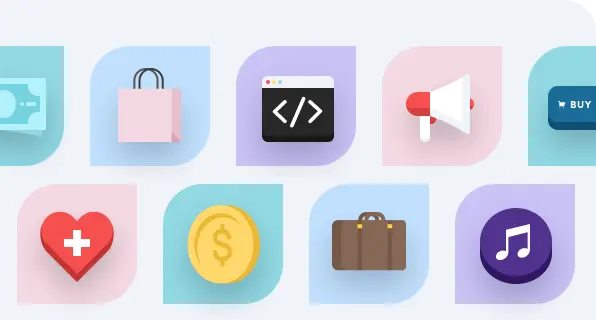8 Marketing Tips to Sell More Tickets for Your Event
In this blog, discover effective strategies to boost ticket sales. Start early with an exclusive early bird special, sell tickets for future events during current ones, and promote the event location. Create engaging contests, offer fun alongside educational content, and collaborate with sponsors to expand reach.

1. Start Early
Whatever date you plan to begin selling your tickets, begin a week or two before that. In fact, announce two separate dates when the tickets will be going on sale. The first will be an early bird special and should be exclusive to subscribers or customers with a membership. A discount should also be included during the early bird sale. The second date is when tickets become available for everyone else at retail price.
The early bird special and discount can also be used as an incentive to encourage customers to sign up for a membership program. Make the announcement on your social media feeds as well as on the main social network page for your event. Include a huge clickable “sign up” icon with a crafty call-to-action.
2. Sell Next Event’s Tickets During Current Event
If you host events on a regular basis, then use your event to begin selling tickets for the next one. Make the announcement before the event comes to a close and offer a discount as a reward for attending the current event. Make it known that the discount is only in effect if purchased before the end of the event.
You can sell the tickets in person by setting up a booth and designating a few staff members to sell hardcopy tickets. Better yet, if you incorporated an event app for your event, then include a customized function that allows attendees to easily order their tickets through their mobile. Speaking of apps, a service like Azavista enables organizers to incorporate a native event app into their conference for easy guest registration and data analytics.
3. Promote the Location of the Event
What are some of the nearby attractions within a cab drive distance of the venue? Are there notable landmarks worthy as a backdrop for a selfie? If your event includes attendees from other cities, states, or countries, then they might be interested in stopping by these locations. If there are popular restaurants, bars, or clubs nearby, have a few staff members take a selfie or two at these locations and use the pics for promoting the event as a whole. Here’s an example of promoting your event while mentioning the area: Our event is located within a stone’s throw of San Francisco Pier where you’ll be able to take in the breathtaking sight of the beautiful coast. While you’re here, stop by Luigi’s Ice Cream for a delicate treat that has become a local favorite for over 50 years. Why should you promote the area? For one thing, promoting nearby businesses and attractions is a selfless thing to do. Secondly, it gives attendees some site seeing benefits that add to their overall experience and impression of your event.
4. Start a Contest
Ticket sales skyrocket tenfold if your staffers get involved. Have them use their own social media channels to spread the word of the event. Make their efforts worthwhile by making it into a contest. Provide an incentive for those whose referrals lead to X amount of sales. The incentive can be as small as a gift card or as extravagant as a paid vacation depending on how big your budget is. Similarly, you can also promote a group effort and offer an incentive for the whole group if everyone’s collective efforts lead to X tickets being sold. The incentive can be an office party with full catering or a bonus in everyone’s next paycheck.
5. Make Your Event Just as Fun as It Is Educational
Sure, most people will be attending your event to hear a guest lecturer or learn something that will benefit them in some area of their lives. However, adding a bit of entertainment value wouldn’t hurt either. Perhaps after the lectures and workshops, you can incorporate an after-party where cocktails are served. The entertainment can include a number of activities, such as: Techno dance party Karaoke hour Performance from a local performer, such as a musician, comedian, or dancer Why do you need to promote the fun stuff? While the main attendees are attending for the educational content, remember that most of them will likely be bringing along spouses, children, and friends. These people are the secondary attendees and would not attend your type of event on their own. By promoting the entertainment aspect of the event, you can appeal to this demographic.
6. Hype the Event With “Mini Events”
Create some sort of countdown where each day includes a “mini-event” that helps build up anticipation for the upcoming event. The concept is similar to the whole “12 days of Christmas” scheme where children create a chain out of construction paper and remove a link as each day passes to commemorate being one day closer to Christmas. Here’s an example of what you can add for each countdown: Day 5: live webinar Day 4: social media contest with ticket giveaways Day 3: video testimonial featuring attendees from the last event. Day 2: guest blog post from one of the event’s guests speakers Day 1: a “see you there” video message Your countdown should start at least 10 days before, though the example above provides some ideas of what you can incorporate. The end of every mini event should include call-to-action encouraging followers to buy their ticket if they haven’t already done so.
7. Get Your Sponsors Involved
A big turnout would benefit your sponsors just as much as it would benefit you. This is why you should encourage them to get involved and promote the event using their own social media outlets. Your sponsors are likely better established than you are, hence why they have the budget to fund your event. As such, they also likely have a larger connection base. While the bulk of the promotion is your responsibility, don’t be afraid to ask your sponsors to promote the event by linking to your ticket sales page.
8. Create Different Ticket Options and Packages
This is a good option if your event is held over the course of several days. There will be members who may decline to attend due to not being able to attend the whole event. For this reason, create different ticket types to accommodate those who may only be able to show up for part of the event. You can, for example, have the regular ticket that’s good for the whole event and another that’s good for just the first day or two. The latter, of course, should be sold at a cheaper price. You can also do the same if the event includes an after-party. You can keep that part of the event separate from the educational workshops and conferences that come before. Create ticket options that are good for both events, good for workshops only, and good for the after party.
Selling Tickets Is all in a Day’s Business
Selling tickets really isn’t hard work at all. You just have to make it really worthwhile for guests to attend and market the hell out of the event. If all the steps are in place, then there really isn’t any reason why tickets shouldn’t sell like hotcakes.











